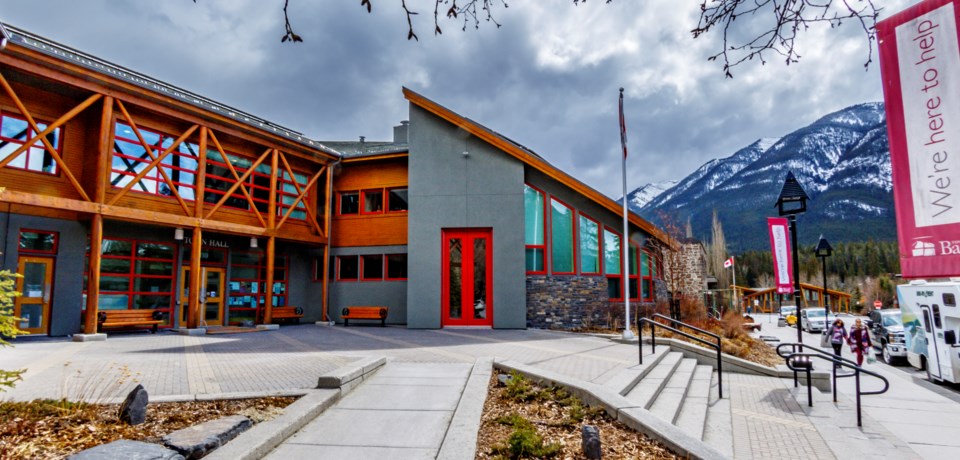BANFF – Banff’s elected officials have turned down an administrative recommendation that could have choked meaningful debate at the council table.
A proposal in the draft procedural bylaw to limit council members to debating a motion only once got no support from the governance and finance committee, however, some time limits are to be set to help meetings run more efficiently.
A council member would be able to debate a motion as many times as needed if introducing new information, but initial debate would be limited to five minutes and subsequent debate to two minutes – though council could decide to give leeway.
“We’re trying something new and if it’s not working for us we can revisit this,” said Coun. Chip Olver during the committee’s Oct. 24 meeting.
“It’s subject to discretion of council or committee, so if someone is going over two minutes, and we can see the value of the content of what’s being said, then of course we can extend it.”
The initial procedural bylaw change was substantive, but one administration indicated was supported by Roberts Rules of Order – a time-tested standard providing common rules of parliamentary procedure for debate and to run orderly meetings with fairness to all members.
However, critics including political science professor at Mount Royal University, Lori Williams, worried it would limit debate and muzzle councillors, rather than allowing the exchange of ideas and points of view that lead to better decision-making, while also giving rise to councillors giving individual speeches.
Libbey McDougall, municipal clerk for the Town of Banff, said the intent is to run efficient meetings.
“What is really important for committee to keep in mind here is these rules are your agreed upon collective understanding of how meetings will be run and how procedure will flow,” she said.
“You can change this to however you want, to however long you would like. Obviously it should be considered, though, is this a good way to ensure you’re running an efficient and effective meeting.”
The existing procedural bylaw indicates a council member shall normally speak no more than five minutes on a motion, but may request permission to extend that limit.
“This is not a section that we currently abide by strictly at this point in time,” said McDougall
Mayor Corrie DiManno said there had been much public discussion around the proposed change to limit debate to once per motion.
“In the past we may have struggled with efficiency and time in getting through our meetings and I can appreciate that administration is trying to look at ways in which we can strengthen both of those areas,” she said.
“For me, though, it would be tough to put something like this in place because often when you are saying your position, you’ll then hear something later in debate that changes your mind and then, of course, you’re going to want to speak to why you’re changing your vote.”
Rather than limiting debate for each councillor to once per motion, DiManno said she preferred councillors be organized and prepared and to only re-enter debate when bringing up new information.
“We have four hours in the morning, four hours in the afternoon twice a month and we often share that with delegations and presentations – that’s precious meeting time,” she said. “I think it’s really important that we make the best use of that time.”
Coun. Hugh Pettigrew said limiting debate to once per motion was not in the best interests of Banff residents.
“Limiting debate will not give me the accommodation that I need to best represent our community on topics that are important and have impacts to the community,” he said.
“It’s really important here that we do not suffocate or limit democracy for the sake of quantity. Making informed decisions through thoughtful debate always comes first.”
Coun. Grant Canning said he didn’t want to limit the number of times people can come into debate, noting he believes the five minutes for initial debate and two minutes for subsequent debate was a fair compromise.
He said there’s an opportunity for councillors to go back into debate time and time again, as long as information is new and somewhat brief.
“This is a really good balance between allowing every councillor to enter into debate to voice their opinions, concerns or what have you, but also to do it in a much more efficient way,” he said.
Pettigrew was unsuccessful in his attempt to set a limit of five minutes instead of two minutes for subsequent debates on a motion, but in the end gave his support to the rest of council.
“If it doesn’t work, we can change it, so for those reasons I might follow along,” he said.
The procedural bylaw will go to council for three readings and final approval.




